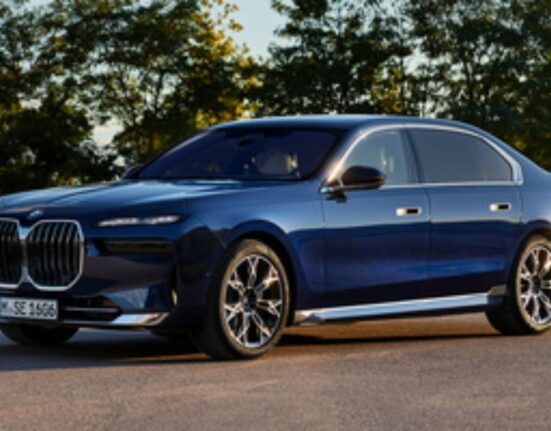Introduction to Concealed Expenses
Purchasing a car in India, be it new or used, encompasses various costs that often remain unnoticed until it’s too late. While the primary focus might be on the sticker price, there are several hidden expenses that can inflate the total outlay significantly. For first-time car buyers, particularly those looking at used car buying, these unforeseen costs can come as a surprise. Being aware of these concealed expenses from the outset can help you better plan your budget and avoid unexpected financial burdens. In this post, we will delve into the six hidden costs associated with buying a car in India, offering insights to make a well-informed decision.
Vehicle Registration and Road Taxation
When purchasing a new car in India, registering the vehicle is a mandatory and often costly procedure. Registration fees are state-dependent and can add a significant amount to your initial expenditure. Additionally, road taxation is an essential cost that varies across states and is typically calculated as a percentage of the car’s ex-showroom price. These regional variations in fees and taxes necessitate thorough research and budget planning to avoid any unpleasant surprises. It’s advisable to understand the specific charges in your state to accurately estimate the total cost of ownership.
Insurance Costs
Insurance is a significant factor that can influence your car’s overall cost. In India, insurance is mandatory and typically falls into two categories: third-party and comprehensive. Third-party insurance, required by law, covers damages to other vehicles in case of an accident. Comprehensive insurance offers broader protection, including damage to your car, theft, and natural disasters, but comes with a higher premium. Comparing various insurance policies and understanding what each covers is crucial before making your decision. The right insurance plan can provide peace of mind, but it’s essential to weigh the benefits against the additional costs to ensure you’re getting the best value for your money.
Upkeep and Servicing
Regular upkeep and servicing are crucial for maintaining your car’s performance and longevity. Routine maintenance tasks, such as oil changes, tyre rotations, and brake inspections, incur costs that can add up over time. Unexpected repairs, whether due to wear and tear or unforeseen issues, can also strain your budget. To mitigate these expenses, it’s advisable to follow the manufacturer’s service schedule and address minor issues before they escalate. Additionally, consider investing in an extended warranty or service package, which can offer financial protection against high repair costs. Neglecting upkeep not only affects the car’s functionality but can also lead to higher costs in the long run.
Effect of Depreciation
Depreciation is an unavoidable factor that impacts the value of a car over time. The moment you drive a new car out of the dealership, it starts to lose value. This reduction can have significant financial implications, especially if you plan to resell the car in the future. Different models depreciate at varying rates, and some can lose value more quickly than others. Luxury cars, for instance, tend to depreciate faster due to higher initial prices and maintenance costs. Used cars generally depreciate slower compared to new ones, making them a more cost-effective choice in the long run. To minimise the effects of depreciation, consider choosing models known for retaining their value better over time. Conducting thorough research and understanding how different factors affect depreciation can help you make a more informed decision and potentially save money in the long term.
Optional Accessories and Features
Optional accessories and features can significantly impact the overall cost of buying a car. Items such as GPS navigation systems, premium sound systems, and leather seats enhance the driving experience but come with additional expenses. These extras can quickly accumulate, leading to a higher total outlay. It’s essential to evaluate which features are genuinely necessary for your needs. Some accessories might seem appealing but could be deemed non-essential after careful consideration. Assessing the cost versus the benefit of each feature can help you make more informed choices and avoid inflating your budget unnecessarily. Prioritise your requirements to keep the expenditure in check and ensure you’re not overspending on add-ons that provide little value.
Financing Costs and Loan Interest
Financing a car purchase often means dealing with additional costs tied to loan interest. When you secure a loan, the interest rate applied can substantially affect the overall expenditure. The rate you get hinges on several factors, including the loan term, your credit score, and the lending institution. Higher interest rates can substantially inflate the total amount you end up paying over the loan’s duration. To mitigate these costs, it’s wise to shop around for the most favourable loan terms and thoroughly understand the financial commitments involved. This includes calculating the total repayment amount, not just the monthly instalments, to ensure you’re making a financially sound decision.
Conclusion and Tips for Prospective Car Buyers
Understanding the comprehensive costs of car ownership is vital for making a wise investment. To begin with, prospective car buyers should meticulously research the total costs beyond just the sticker price. This includes being aware of state-specific fees, insurance premiums, and the expected depreciation of the car model you’re interested in. Additionally, it’s beneficial to compare various financing options to secure the best interest rates, which can significantly impact the overall expenditure.
Routine maintenance and servicing should not be overlooked, as they are crucial for the car’s performance and longevity. Investing in an extended warranty or service package can offer financial protection against unexpected repairs. While optional accessories and features can enhance your driving experience, it’s essential to assess their necessity and impact on your budget carefully.
Used cars can be a cost-effective option due to slower depreciation rates compared to new cars. It’s wise to consider models known for retaining their value better over time. Lastly, comparing different insurance policies and understanding their coverage can provide better value for your money.
By considering all these factors and planning accordingly, prospective car buyers can avoid unexpected financial burdens and make an informed decision that aligns with their long-term financial goals. Careful preparation and thorough research are essential for a successful car buying experience in India.







Leave feedback about this